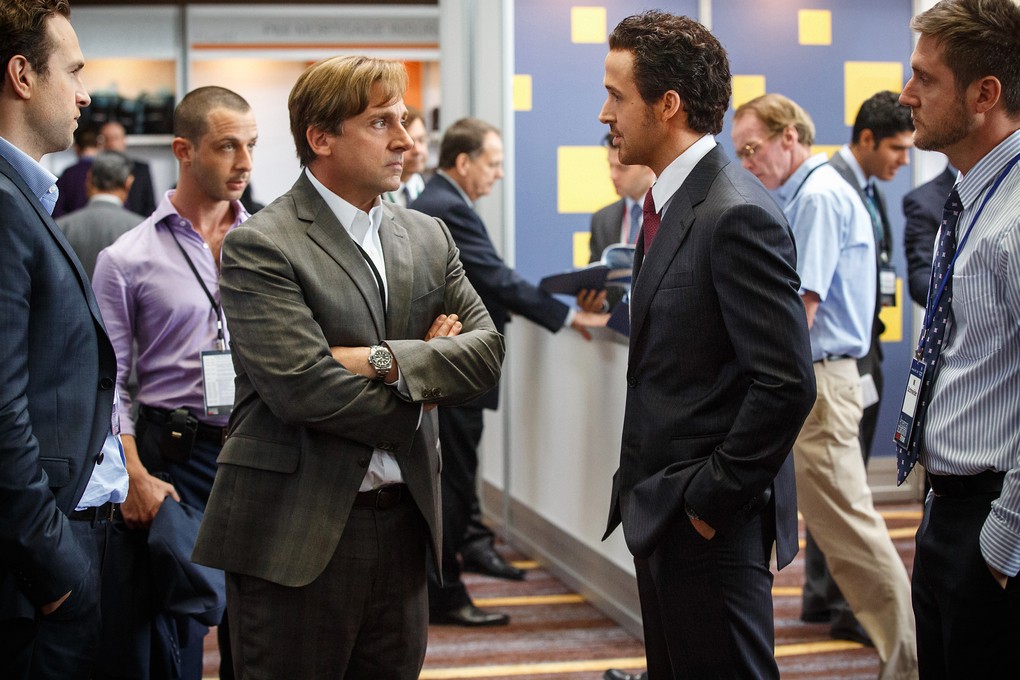By Brett Sanders
Staff Writer
“The Big Short” is one of the first major films to revolve around the 2008 financial collapse that led to a dark recession. The movie tells the story of three sets of people betting against the stock market with the hopes of reaping capital gains. It all sounds good — except that it would result in millions of people being unemployed and homeless. Unfortunately, this is not the only dilemma of the film, as it lacks many traits that make it a movie worth spending money on.
Director Adam McKay, best known for “Step Brothers,” “Anchorman” and “Talladega Nights,” steps out of his comfort zone to a non-comedic subject. The results are lackluster.
“The Big Short” tries to be a documentary, comedy and drama at the same time, often resulting with the mise-en-scene as a cluster of genres, leaving the viewer overwhelmed. The film cuts to famous celebrities explaining advanced economic and finance theories that helped what cause the financial collapse. Although this is comedic at first, it gets old quickly. Even worse, the characters do not do a good job of explaining the complex material. Without knowledge of advanced finance theories, it is often hard to understand what the characters are talking about.

The cast is one of the saving graces of the film. Starring Christian Bale, Steve Carell, Ryan Gosling and Brad Pitt, “The Big Short” carries a fun ensemble that is recognizable to many viewers. That being said, the screenplay is ultimately the problem. The performers are not given the opportunity to shine, as the written script is simply translated into actors saying lines without any emotion. Bale, who many consider to be one of the greatest actors alive, is introduced and then sits behind a computer staring at numbers for the majority of his time on screen. Pitt, who also serves as a producer on the film, has a mere cameo and mostly just mutters his lines for comedic effect. It is a shame to see the film underutilizing these talents.
The film focuses more of the action on Carell and Gosling. Last year, Carell was nominated for an Oscar for this role in “Foxcatcher,” showing the world that he can also successfully portray serious characters. Carell is praised again this year, as many find it interesting and fun to see him in a more dramatic role. The performance itself is average, only critically recognized because it is a different role for someone who comes from a comedic background. Gosling brings the most fun to the screen, portraying an over-the-top Wall Street trader. His lines are quick-witted and entertaining. Finn Wittrock, John Magaro, Marisa Tomei and Melissa Leo have minor parts, but the attention is focused on Carell and Gosling for the majority of the film, making everyone else easily forgettable.
It is important for viewers to understand the focus of “The Big Short.” The film suggests that society should learn from its mistakes — the mistake in this case being the act of lending money to anyone who asks for it, which caused a global recession and financial collapse. While the film should be applauded for bringing these concepts to light, only viewers within the niche market of business and finance will find the movie to be fully entertaining. Unfortunately, others may find the length of the film and constant finance-jargon dull and boring. Hopefully other directors will bring the financial crisis to light in future films that are informative as well as thrilling.






